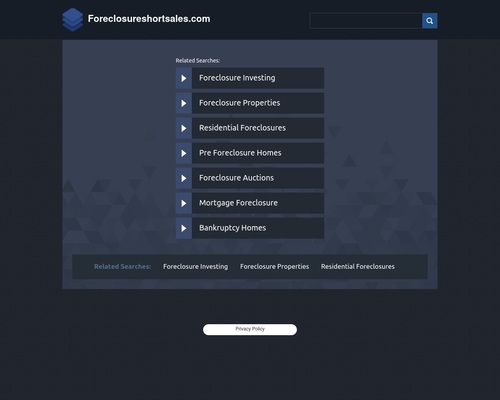

- Foreclosure University
Product Name:
Your Online Real Estate Investing Resource
From: Jarad Severe, Foreclosure University
🏚️ How to Build Wealth with Foreclosures — Why Now is the Golden Moment
By Boston REIA — June 27, 2025
If you’ve ever wondered whether real estate investing is still the fastest way to build wealth in America, here’s the short answer: Yes — if you know what you’re doing.
Right now, there’s an overlooked corner of the real estate market creating life-changing profits for smart investors: foreclosures.
In this guide, you’ll learn why foreclosures can be so profitable, why this window won’t stay open forever, and how to shortcut the learning curve to get started safely and smartly — without spending years figuring it out the hard way.
📉 Why Foreclosures Create Massive Opportunity
When the economy tightens, foreclosures surge. We’ve seen it before — and we’re seeing it again now.
Tens of thousands of homeowners are falling behind on payments due to job losses, inflation, and rising interest rates. Banks don’t want to own houses — they want their money back. This creates one of the greatest “wealth shifts” we’ve seen in over a decade:✅ Motivated sellers.✅ Below-market properties.✅ Incredible margins if you know how to buy right.
But here’s the uncomfortable truth: Most new investors miss out. They get stuck on the sidelines, overwhelmed by paperwork, scared of making a mistake, or frozen by “analysis paralysis.”
📚 What Seasoned Investors Do Differently
The best investors aren’t lucky. They just have a proven system — and they follow it.
They know exactly:
How to find foreclosure deals (before the next guy)
How to negotiate with lenders and owners
How to analyze profit and risk
How to close with confidence
They don’t reinvent the wheel. They don’t guess. They don’t waste years making costly rookie mistakes.
⏳ Why This Window Won’t Stay Open Forever
According to Foreclosure University’s founder Jarad Severe, the current surge in distressed properties is a once-in-a-decade opportunity — a perfect storm of high rates, economic stress, and motivated sellers.
But it won’t last forever.
Banks are tightening up. Hedge funds are snapping up bulk deals. And prices can shift fast when inventory gets scooped up.
If you wait too long, this door closes. The big money always moves early.
⚡ How to Shorten the Learning Curve
Nobody wants to lose money on their first deal. That’s why the right education can mean the difference between your first profitable flip and your first expensive lesson.
Jarad Severe’s Building Wealth with Foreclosures program is designed for exactly this:👉 Showing you where to find profitable deals👉 How to negotiate directly with banks👉 How to handle the paperwork, legal traps, and title issues👉 How to exit each deal with maximum profit
It’s the same information he’s taught live for years — but streamlined into a home-study course that cuts years off the typical rookie’s learning curve.
🎯 Who This Is Not For
Foreclosure investing isn’t for everyone. It’s not a “get rich with no effort” scheme.
If you’re looking for instant money with no work, don’t bother. But if you’re serious about building real, repeatable wealth and you’re willing to learn and act — the rewards can be life-changing.
💡 Is This the Right Time for You?
Here’s the truth: You’re not the only one thinking about it. But most people will watch from the sidelines — and a few will jump in and collect the profits.
Which one do you want to be?
If you’re ready to get practical, proven foreclosure training (without paying $10,000 for a weekend seminar), this could be your smartest next step.
✅ Next Steps: How to Get Started
Jarad Severe’s Building Wealth with Foreclosures is backed by a full money-back guarantee — so you can learn the same steps seasoned investors use with zero risk.
Inside, you’ll get:
Proven templates and contracts (no lawyer needed)
Step-by-step checklists for each stage
Insider negotiation tactics
Audio lessons so you can learn on the go
Real case studies from actual deals
And if you’re reading this now — it’s available at the lowest price it’s ever been.
🕒 Don’t Wait for the Door to Close
The next few months could define your financial future for decades. Learn how to flip the current foreclosure wave into real wealth — for you and your family.
Click here to get - Foreclosure University at discounted price while it's still available...
All orders are protected by SSL encryption – the highest industry standard for online security from trusted vendors.
- Foreclosure University is backed with a 60 Day No Questions Asked Money Back Guarantee. If within the first 60 days of receipt you are not satisfied, simply request a refund by sending an email to the address given inside the product and we will immediately refund your entire purchase price, with no questions asked.
https://bostonrealestateinvestorsassociation.com/foreclosure-university/










